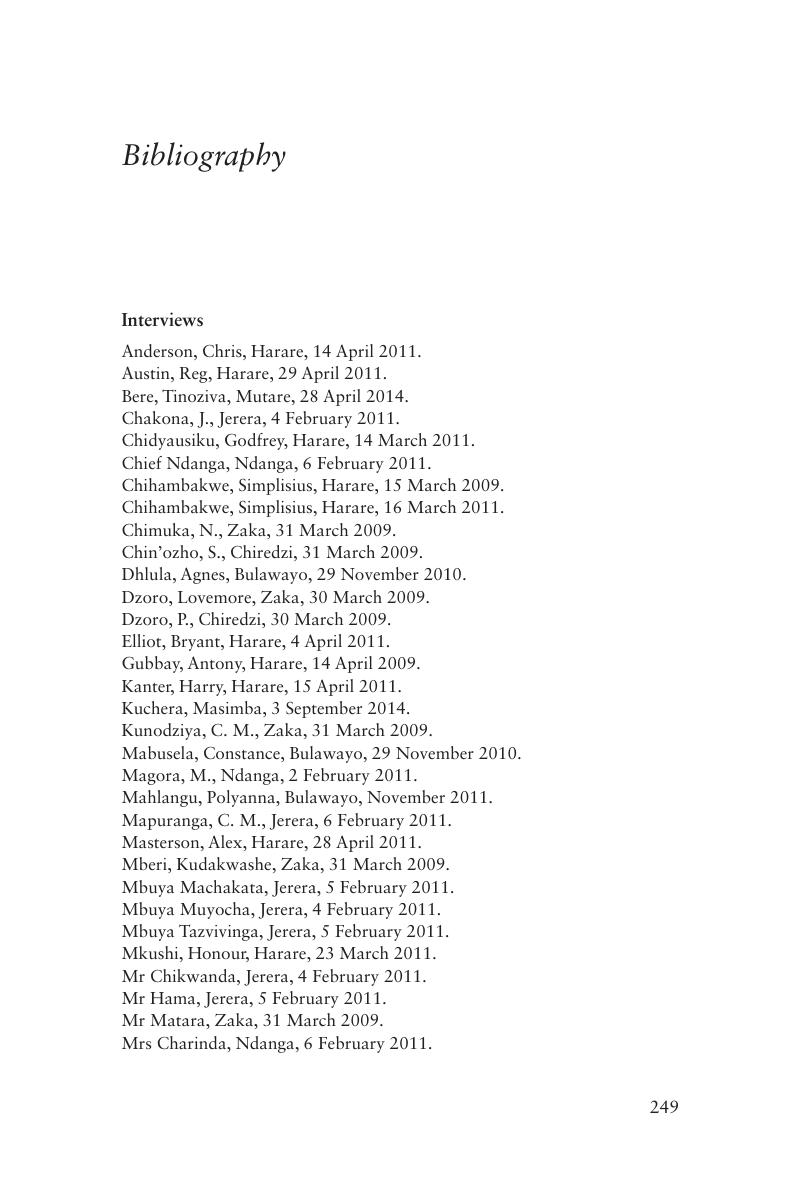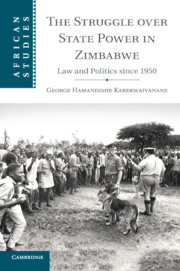Book contents
- The Struggle over State Power in Zimbabwe
- African Studies Series
- The Struggle over State Power in Zimbabwe
- Copyright page
- Dedication
- Contents
- Figures
- Tables
- Acknowledgements
- Abbreviations
- Introduction
- 1 Laying Down the Law: A Historical Background, 1890–1950
- 2 Customising Justice and Constructing Subjects: State, ‘Customary Law’ and Chiefs’ Courts, 1950–1980
- 3 Legislating Against Dissent: Law, Race and Politics, 1950–1964
- 4 Legality without Legitimacy: Law and Politics during UDI, 1965–1980
- 5 Intermediaries, Intellectuals and Translators: African Lawyers and the Struggles in the Legal Arena, 1950–1980
- 6 Law and Transformation: Remaking the Legal System in Post-colonial Zimbabwe, 1980–1990
- 7 Continuity and Consolidation: Law and Politics in Zimbabwe, 1980–1990
- 8 ‘The Past as Prologue’: Law and the Zimbabwean Political Crisis, 1997–2008
- Conclusion
- Bibliography
- Index
- Books in This Series
- References
Bibliography
Published online by Cambridge University Press: 31 October 2017
- The Struggle over State Power in Zimbabwe
- African Studies Series
- The Struggle over State Power in Zimbabwe
- Copyright page
- Dedication
- Contents
- Figures
- Tables
- Acknowledgements
- Abbreviations
- Introduction
- 1 Laying Down the Law: A Historical Background, 1890–1950
- 2 Customising Justice and Constructing Subjects: State, ‘Customary Law’ and Chiefs’ Courts, 1950–1980
- 3 Legislating Against Dissent: Law, Race and Politics, 1950–1964
- 4 Legality without Legitimacy: Law and Politics during UDI, 1965–1980
- 5 Intermediaries, Intellectuals and Translators: African Lawyers and the Struggles in the Legal Arena, 1950–1980
- 6 Law and Transformation: Remaking the Legal System in Post-colonial Zimbabwe, 1980–1990
- 7 Continuity and Consolidation: Law and Politics in Zimbabwe, 1980–1990
- 8 ‘The Past as Prologue’: Law and the Zimbabwean Political Crisis, 1997–2008
- Conclusion
- Bibliography
- Index
- Books in This Series
- References
Summary

- Type
- Chapter
- Information
- The Struggle over State Power in ZimbabweLaw and Politics since 1950, pp. 249 - 263Publisher: Cambridge University PressPrint publication year: 2017



